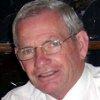Until three weeks short of my 74th birthday, I had never spent a night in a hospital. Then along came prostate cancer.
A laparoscopic radical prostatectomy and some post-surgery complications gave me more than the usual number of nights in a hospital in Perth, Australia.
The Cancer Council Australia has many booklets available to people with cancer and to their families and friends. One of them, "Emotions and Cancer," encourages cancer bearers to "tap into spiritual beliefs."
"For some people," it says, "the experience of cancer challenges their beliefs."
But it wasn't the cancer that challenged my beliefs. They had been well-challenged, discarded or reshaped over the past 20 years. What I found myself pondering at 3 a.m. in the hospital bed was how I now face the reality of my life with spiritual beliefs so vastly different from the theology in which 50 years of my life had been cemented. Also, before considering those beliefs, there came the challenge to accept and live in the now, not to focus on what life was like without the cancer, or what the future might or might not be.
My basic spiritual belief that has emerged in recent years is this: I am a human expression of whatever it is that drives and underpins the universe and all of reality. I have tried to engage the wonder, the privilege and the challenge of giving human expression to this mystery. I no longer use "God" talk except to suggest that any use of the word "God" can point to a mystery light years beyond the way Scripture and traditional theology picture "God" as a heavenly deity.
So, at 3 a.m., I found myself thinking: This is my now experience of being a human expression of the universe and whatever drives it. The universe is not doing anything to me. Certainly, there is not a God out there asking something of me.
I cannot be angry with this body that has served me so well all these years. Yes, I can regret the years of smoking and bad dietary habits that may well have given rise to the cancer, but granted the regret, I want to positively live the understanding I have about what it means to be human.
I knew for a year before the operation that I had an aggressive form of prostate cancer. In that time, as I conducted retreats and workshops on the need to articulate a 21st-century spirituality that respected contemporary understanding of our place in the universe, I found myself thinking of and appreciating the universe as gracious, expansive and magnanimous. The acronym "GEM" came to mind as a simple mantra, a constant reminder that to be the best human expression of the universe and whatever keeps it going, I need to be gracious, expansive and magnanimous.
It is a tall order, but I must say I like the feel of it. It opens me to a much wider perspective about life, about myself, and about how I am to handle illness and tough times. I've also found that it connects me much better with Jesus and how he faced life than all the redemptive theology I carried for so many years.
I have long wished that I might experience something of the "soul seeing" of Jesus and the mystics. I have read with a sense of amazement accounts of men and women of various religious faiths and those with no religious faith at all who have had the most wonderful moments of "enlightenment" in which they have experienced, as Ralph Waldo Emerson expressed it, "the currents of the Universal Being circulate through me." I have wondered why I have not had such moments. Why not most people?
Several years ago, I heard a talk on religious tolerance given by the Japanese Consul in Melbourne. The speaker shared a quote he learned as a boy from his Japanese English teacher: "Down below the stirring waves of difference and dissimilarities there lies a deep sea of humanity that unites us all."
Throughout history, the great spiritual, mystical teachers have engaged that deep sea and have tried to inspire and lead their followers to experience it and to share their experience of it. It is clearly the most central aspect of Jesus' teaching; that "deep sea of humanity" resonates with the realities of love, compassion, growth and being neighbor.
So, at 3 a.m., I found myself, sore as I was, inwardly content as I brought GEM to mind, knowing that I was in touch with a big picture of reality, not as a blinding flash of insight or as a momentous experience of enlightenment, but as a conviction: I have left the theology of a lifetime behind, and whatever it is that underpins and drives the universe has been able to touch me more deeply than ever before.
I no longer look for that big moment of enlightenment. There is a knowing now for which I am immeasurably grateful -- and I am convinced that it is readily available to anyone who engages mystery, wonder and awesomeness rather than focus on correct theological thinking. Wouldn't the mystics tell us so?
[Michael Morwood, an adult faith educator, is the author of nine books on spirituality, prayer, and the need to reshape Christian imagination and thinking. His most recent book is In Memory of Jesus.]




